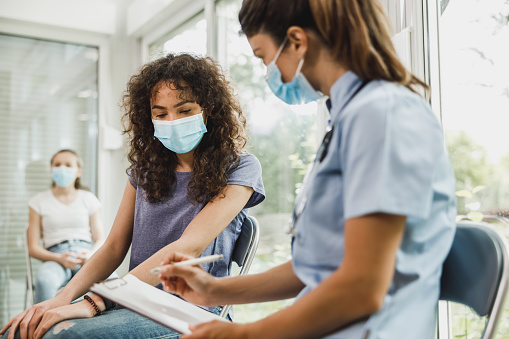Preventing a miscarriage: What can you do?

Going through a miscarriage can take a toll on your mental health. If you’ve recently had a miscarriage, it is only natural to question why this happened to you and what you can do to prevent it in the future. Miscarriages usually occur due to fetal developmental issues or chromosomal abnormalities in the fetus.
In such cases, miscarriage prevention is not possible. Most miscarriages happen in the first trimester, and the Best Gynecologist in Karachi can guide you on the dos and don’ts in the first trimester of pregnancy. Nonetheless, some lifestyle changes and healthy habits can limit the risk of miscarriage.
5 things that can reduce the risk of miscarriages
Completely eliminating the possibility of a miscarriage may not be possible, but taking steps to make yourself healthy can lower the chances of a miscarriage. Here are a few tips that can help:
1. Eat a healthy diet
No matter how many vitamins you’re consuming, getting vitamins in natural form is the best way to get them. Add fruits and vegetables that are rich in minerals and nutrients that your body requires. Take a balanced diet that includes nutrition-packed food. It will help you maintain a healthy weight, and it can also be a prominent factor in a healthy pregnancy.
2. Be careful in the kitchen!
Studies link food-Bourne illnesses with a higher risk of miscarriage. Your Gynecologist in Lahore will guide you on what you should eat and avoid during pregnancy. That’s not all! Safe handling of food is essential to prevent food-borne illnesses. You should clean your hands before and after handling raw food. You must cook the food properly, especially any type of meat. Wash fresh produce thoroughly to remove any dirt or bacteria on its surface.
3. Quit smoking
We all know the negative impact of smoking on our overall health. It impacts all parts of your body and puts you at a higher risk of lung disease, heart disease, cancer, and other diseases. Women who are smokers are more likely to get a miscarriage and other problems associated with pregnancy and birth. It also decreases your life expectancy. Letting go of tobacco can help you with a healthy pregnancy.
4. Have a healthy BMI
Your BMI shows whether your body fat to height and weight ratio is normal, underweight, or obese. Try to keep your BMI in the normal range. If you’re overweight, make efforts to lose weight as many studies suggest that women with a higher BMI are at an increased risk of miscarriages.
5. Manage your stress
Stress can cause numerous health problems and if you want to live a healthy life, try to keep your stress at a minimum. Stress can be detrimental to your health and the health of your baby. It also increases the risk of a miscarriage.
Regular doctor checkups
Whether you are planning to conceive or are pregnant, it is vital to consult a gynecologist and get professional advice from them. Tell them your complete medical history and lifestyle. They will guide you on what lifestyle changes you require. They may also prescribe vitamins to help you with conception. Skipping the checkups, especially during pregnancy can be problematic, so make sure to go for your regular checkups.
What to do after a miscarriage?
Miscarriage can be a deeply painful and difficult experience for anyone who has gone through it. While it can be challenging to know what to do after a miscarriage, there are a few steps that you can take to help you cope and move forward. First and foremost, it’s important to allow yourself time to grieve and process your emotions. There is no right or wrong way to feel after a miscarriage, and it’s essential to give yourself permission to feel whatever emotions arise.
In addition to taking the time to grieve, it can be helpful to lean on your support system. Reach out to loved ones, friends, or a therapist for support and comfort during this difficult time. Taking care of yourself physically is also important. Make sure to eat well, stay hydrated, and get enough rest. It’s also a good idea to avoid alcohol and other substances that could be harmful to your body.
Finally, when you feel ready, it can be helpful to consider seeking additional resources or support. This might include joining a support group for people who have experienced a miscarriage, seeking a therapist specializing in grief and loss, or exploring other forms of healing and self-care. Remember, healing from a miscarriage is a process, and there is no right or wrong way to navigate it. Be gentle with yourself, take things one day at a time, and remember there is hope for a brighter future.
First of all, you need to relax and rest. Miscarriages are traumatic for your body and your mental health. Talk to your doctor and check if there are any underlying conditions such as diabetes, and try to get them in control. Lastly, do not blame yourself as it will not help you. Ask your gynecologist when you should be trying to conceive again.
Read More: What can you do with a Master’s in Secondary Education?



